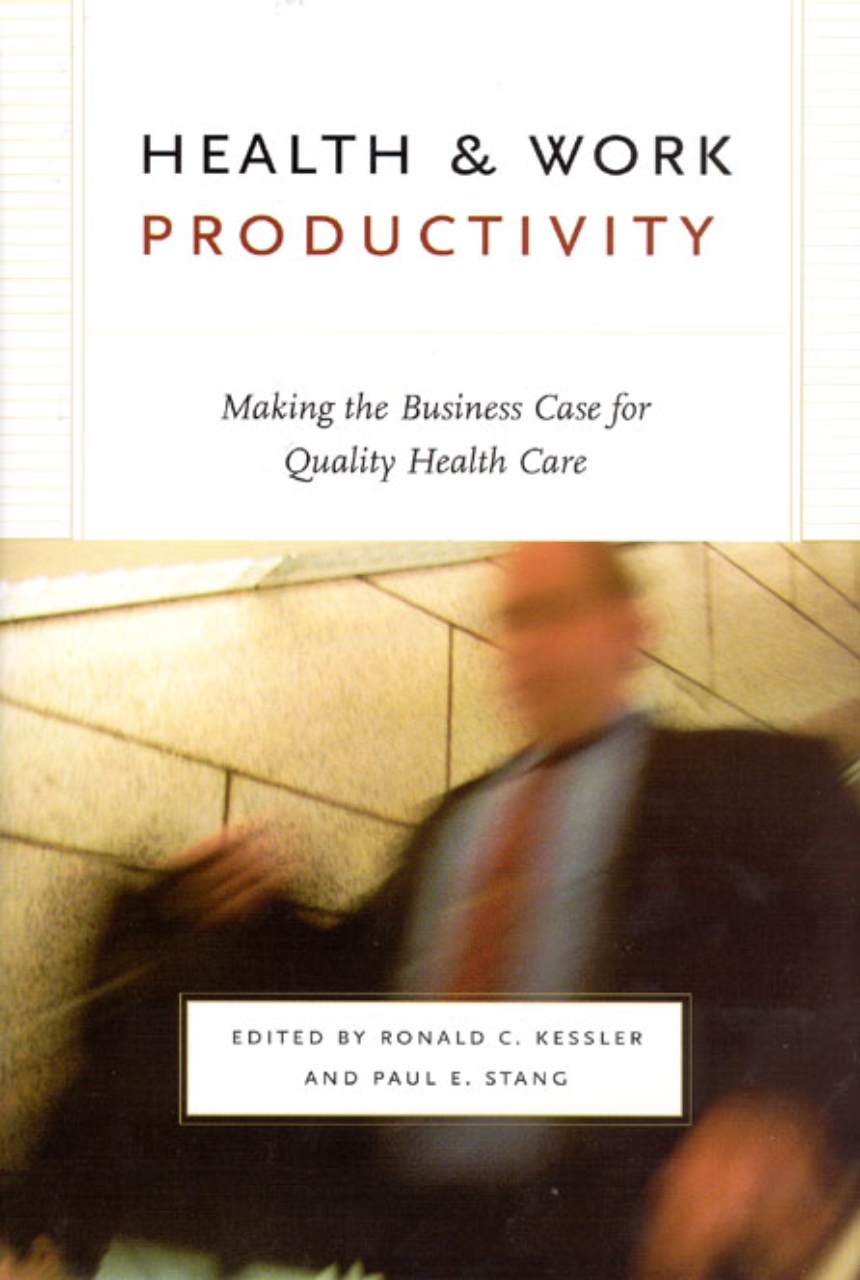Health and Work Productivity
Making the Business Case for Quality Health Care
A recent study of productivity in the workplace revealed that workers spend on average eight percent of their workday doing nothing. This statistic takes on greater significance when we find that health problems impact employee productivity loss by an even greater percentage. In light of this discovery, a group of leading experts from the emerging field of health and productivity research argues that the expansion of health care benefits represents a substantial investment opportunity for employers.
Health and Work Productivity presents state-of-the-art health and productivity research that suggests interventions aimed at prevention, early detection, and best-practice treatment of workers along with an informed allocation strategy can produce significant cost-benefits for employers. Contributors cover all the major aspects of this new area of research: approaches to studying the effects of health on productivity, ways for employers to estimate the costs of productivity loss, concrete suggestions for future research developments in the area, and the implications of this research for public policy.
Health and Work Productivity presents state-of-the-art health and productivity research that suggests interventions aimed at prevention, early detection, and best-practice treatment of workers along with an informed allocation strategy can produce significant cost-benefits for employers. Contributors cover all the major aspects of this new area of research: approaches to studying the effects of health on productivity, ways for employers to estimate the costs of productivity loss, concrete suggestions for future research developments in the area, and the implications of this research for public policy.
248 pages | 24 figures, 7 tables | 6 x 9 | © 2006
The John D. and Catherine T. MacArthur Foundation Series on Mental Health and Development
Economics and Business: Health Economics
Psychology: Personnel and Industrial Psychology
Sociology: Occupations, Professions, Work
Reviews
Table of Contents
Acknowledgments
1. Intersecting Issues in the Evaluation of Health and Work Productivity
Ronald C. Kessler and Paul E. Stang
Part One - Approaches to Studying the Effects of Health on Worker Productivity
2. Linking Administrative Claim Data with Archival Productivity Measures to Inform Employer Decision-Making
Paul E. Greenberg and Howard G. Birnbaum
3. Simulation for Measurement of Occupational Performance
Jonathan Howland, Thomas W. Mangione, and Angela Laramie
4. Measuring Heath-Related Work Productivity with Self-Reports
Debra J. Lerner and Jennifer Lee
5. Use of the Experience Sampling Method in Studies of Illness and Work Performance
Philip S. Wang and Nancy A. Nicolson
6. Estimating the Dollar Costs of Productivity Losses Due to Illness: An Application of O*NET
Lance Anderson, Scott H. Oppler, and Andrew Rose
Lance Anderson, Scott H. Oppler, and Andrew Rose
7. Labor-Market Consequences of Health Impairments
Thomas Deleire and Willard G. Manning
Part Two - Stakeholder Perspectives
8. Overcoming Barriers to Managing Health and Productivity in the Workplace
Dennis P. Scanlon
9. Investing in Health to Boost Employee Productivity: The Employer’s Perspective
James F. Murray, Sean Nicholson, Mark Pauly, and Marc L. Berger
10. The Role of Health Plans in Linking Quality of Care to Labor Outcomes: Challenges and Opportunities
Arne Beck
11. The Pharmaceutical Industry and Productivity Research
Christopher J. Evans
12. A Regulatory Perspective on Productivity Claims: Implications for Future Productivity Research
Paul E. Stang, Paul E. Greenberg, Howard G. Birnbaum, Ronald C. Kessler, Lynn Hoffman, and Mei-Sheng Duh
13. Investing in Health to Promote Human Capital in Developing Countries: The Importance of Productivity and Health to the World Bank
Harvey Whiteford
Part Three - Conclusion
14. Future Directions in Health and Work Productivity Research
Ronald C. Kessler and Paul E. Stang
Contributors
Author Index
Subject Index
Subject Index
